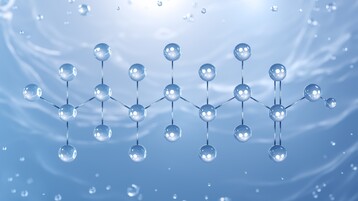Coalition Will Test Island Water Wells For PFAS Contamination
JohnCarl McGrady •

A coalition of organizations including the Nantucket PFAS Action Group is planning to test hundreds of local wells for dangerous chemicals known as PFAS.
PFAS is a broad name for a large family of so-called “forever chemicals” found in everything from carpets and furniture to food packing and nonstick pans. PFAS are believed to increase cancer risk for those exposed, and potentially cause other health conditions as well.
The new program, a collaboration between the Nantucket PFAS Action Group, the Nantucket Land and Water Council (NLWC), the Natural Resources Defense Council, Westfield Residents Advocating for Themselves, UMASS Amherst, and the University of Notre Dame, is a cheaper, faster, more comprehensive method for PFAS testing that could help determine how widespread contamination is on Nantucket and allow those affected to better respond to the threat.
“We can make this affordable, reachable information,” analytical chemist and PFAS activist Kristen Mello, who presented the program at the NLWC’s annual meeting, said.
There are other commercial tests for PFAS, but they generally measure 70 PFAS at most. The EPA recognizes over 14,000 PFAS, while over 6,000,000 are recognized in Europe.
Massachusetts regulates a mere six. The new program will use a cutting-edge procedure that utilizes gamma radiation and a small particle accelerator to test for all PFAS, a technique that has previously revealed large quantities of harmful chemicals other tests missed.
So far, funds have been secured to test 300 wells on-island, and the coalition is looking to raise more money to expand their efforts. People can also pay to have their water tested as part of the project. While the project mostly aims to measure PFAS levels in private wells, NLWC executive director Emily Molden suggested they might expand it to test town water as well if all relevant parties agreed.
During the meeting, the NLWC also recognized Ayesha Khan as its “Advocate of the Year” for her work around the PFAS issue. Khan formed the Nantucket PFAS Action Group after her husband, Nantucket Fire Department captain Nate Barber, was diagnosed with testicular cancer. Studies show that firefighters have elevated levels of PFAS in their blood, likely due to the PFAS-heavy turnout gear they wear while responding to fire calls, and exposure to PFAS may have contributed to Barber’s diagnosis. Since then, Khan has led local efforts to combat PFAS contamination and her work has made national news.
“We’re beyond lucky to have Ayesha [Khan Barber] fighting for our health and clean water,” Molden said.